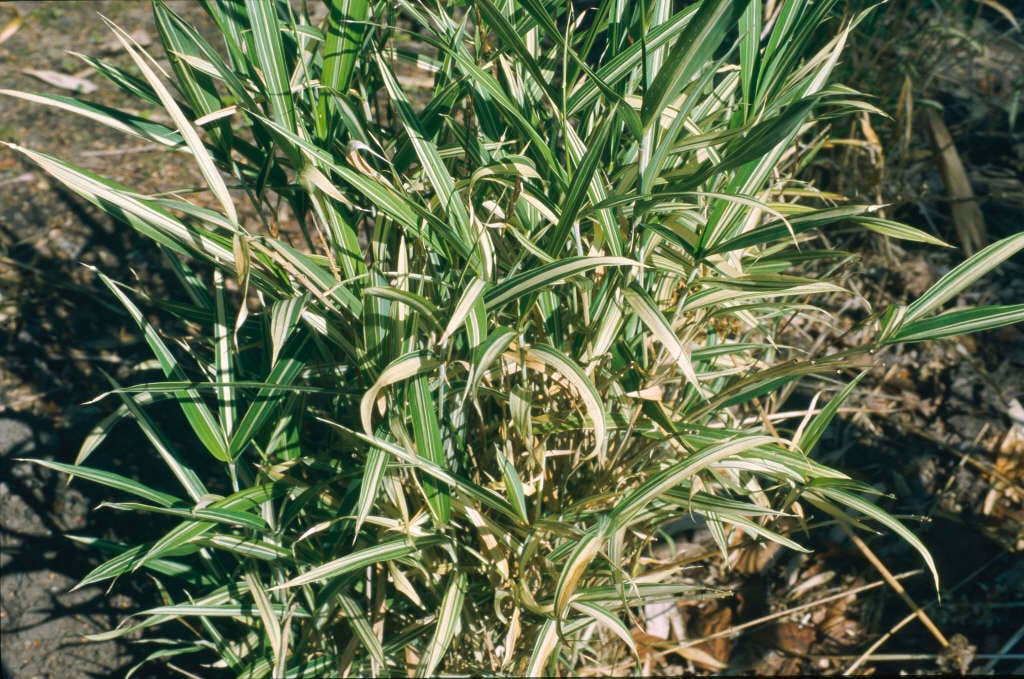Pleioblastus variegatus (v)
dwarf white-striped bamboo
A low, tufted bamboo forming a slow-spreading colony to 1.2m high, the slender, pale green canes bearing narrow leaves to 20cm long, striped with creamy-white
Synonyms
Pleioblastus fortunei 'Variegata'Arundinaria fortunei
see moreFargesia fortunei
Arundinaria variegata

Buy this plant
Size
Ultimate height
0.5–1 metresTime to ultimate height
5–10 yearsUltimate spread
1–1.5 metresGrowing conditions
Moisture
Moist but well–drainedpH
Acid, Alkaline, NeutralColour & scent
| Stem | Flower | Foliage | Fruit | |
| Spring | Cream Green | |||
|---|---|---|---|---|
| Summer | Cream Green | |||
| Autumn | Cream Green | |||
| Winter | Cream Green |
Position
- Full sun
Aspect
West–facing or South–facing
Exposure
Sheltered Hardiness
H5Botanical details
- Family
- Poaceae
- Native to GB / Ireland
- No
- Foliage
- Evergreen
- Habit
- Suckering, Clump forming
- Genus
Pleioblastus are evergreen bamboos, diverse in size and habit, with vigorously-spreading rhizomes forming dense thickets of slender canes bearing several leafy branches at each node
- Name status
Correct
- Plant range
- Japan
How to grow
Cultivation
Grow in fertile, humus-rich, moist but well-drained soil, in full sun or partial shade. Protect from cold drying winds. In a container grow in a peat-free, loam-based compost and feed with a balanced liquid fertiliser on a monthly basis during the growing season.May remain clump-forming in poor or dry soils but can become invasive in warm, moist or favourable conditions and need restraining ; see bamboo control and bamboo cultivation
Propagation
Propagate by division, separate rhizomes in spring, keeping divisions moist until well established
Suggested planting locations and garden types
- Architectural
- Patio and container plants
- Hedging and screens
Pruning
Remove weak, dead, damaged or spindly stems in spring and thin to show off stems to best effect. Cut out any flowering shoots promptly to discourage more from forming - see bamboo cultivation
Pests
May be susceptible to slugs
Diseases
Generally disease-free
Get involved
The Royal Horticultural Society is the UK’s leading gardening charity. We aim to enrich everyone’s life through plants, and make the UK a greener and more beautiful place.